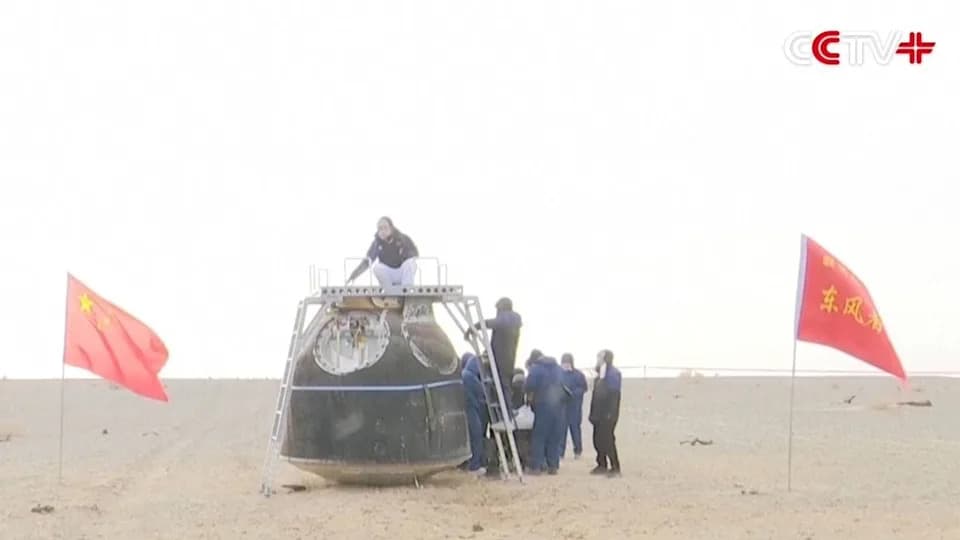China’s Manned Space Engineering Office says the three astronauts aboard Shenzhou-20 are "in good condition" after their Nov. 5 return was aborted over concerns the spacecraft may have been struck by a small piece of orbital debris. The landing has been postponed to an unspecified date while teams conduct tests and drills to confirm safety. Shenzhou-21 docked with the Tiangong station on Nov. 1 and carried mice for experiments; the Shenzhou-20 crew had been completing a six-month mission. China continues to expand its space program and aims for a crewed lunar landing around 2030.
Shenzhou-20 Crew Reported 'In Good Condition' After Suspected Debris Strike — Return Postponed

Shenzhou-20 astronauts safe as planned return delayed after suspected debris strike
Beijing — China’s Manned Space Engineering Office said Tuesday that the three astronauts aboard Shenzhou-20 are "in good condition, working and living normally" after their scheduled Nov. 5 return to Earth was aborted when mission controllers determined the spacecraft may have been struck by a small piece of orbital debris.
The decision to postpone the landing was taken as a precaution while ground teams carry out detailed tests and practice drills to verify the spacecraft’s safety and readiness for reentry. The agency has not announced a new return date.
"The Shenzhou-20 crew is in good condition, working and living normally," the office said in its statement.
The crew — Chen Dong, Chen Zhongrui and Wang Jie — traveled to the Tiangong space station in April and were completing a planned six-month rotation. A replacement vehicle, Shenzhou-21, successfully docked with Tiangong on Nov. 1 and, for the first time on a crewed Chinese flight, carried a group of mice for scientific experiments.
China has steadily expanded its space capabilities since launching its first human spaceflight program in 2003, completing its own modular Tiangong orbital station and setting an objective to land astronauts on the Moon by about 2030.
What happens next: Mission engineers will continue inspections, simulations and readiness checks. Officials say they will announce a new reentry plan only after confirming the spacecraft and crew are fully safe to return.
Help us improve.























